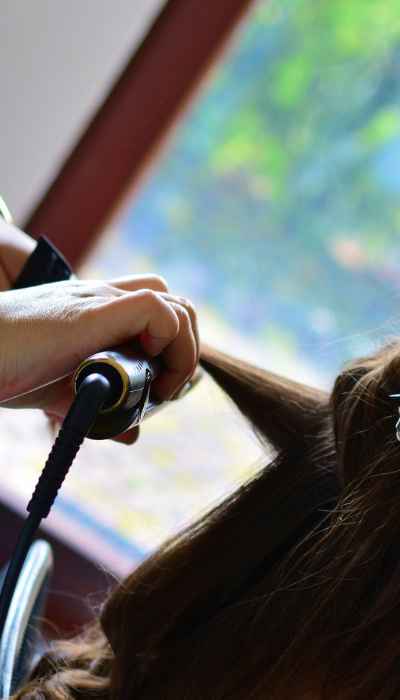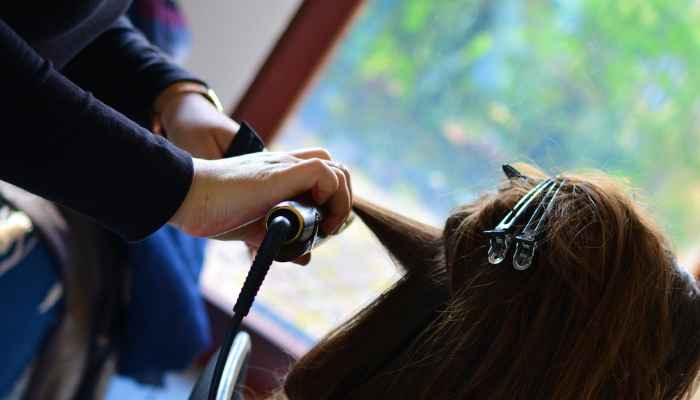Last Updated on April 25, 2024 by Ryan
Hair is the one aspect of beauty that most people, especially women, will pay much attention to. A good hair care routine can include shampoos, straighteners, hair curling products, a chemical hair straightener, and scalp treatments, and other hair products.
Unfortunately, not all of your routine hair products are safe to use. On October 17, 2022, the journal of the National Cancer Institute published a finding from a Sister Study that showed a link between uterine cancer and certain hair straightening products.
These findings can be troubling for people who have used a chemical hair straightener for an extended period. The good news is that there are some red flags you can look out for when choosing hair products, and we have identified some of the major ones.
Extreme Hair Breakage
Growing long, healthy hair takes much effort, and the last thing you want is anything that can roll back the gains you have made by causing breakage. While hair breakage is normal, irrespective of hair length and the products you use, anything more than normal hair loss should be a cause for concern.
Sometimes, it can be an indicator that your hair products could be causing the breakage. This is especially true if you have recently changed the hair products you use. Several things can be indicators of hair breakage, such as your comb collecting more hair than normal or having pieces of hair all over the place.
The hair’s general appearance can also be something to watch out for if you suspect your hair could be breaking. If it feels dry and flaky or has many short strands, you could have a hair breakage problem. But before you blame it all on a hair product, you should also consider other factors, such as your general health, diet, and how often you tie it up.
Increased Skin Flaking, and Dandruff
Dandruff is common for some people and may not result from bad hair products. If you notice a significant increase in skin flaking after changing a skin care product, and you do not have an ongoing problem with dandruff, your new hair care product could be the culprit.
Skin normally sheds, but it has a specific timeline for shedding. Usually, shedding is not prominently visible. Dandruff is a sign of skin shedding before its normal timeline. The increased shedding rate causes the skin flakes to stick together, forming visible white flakes.
The most common cause of dandruff is using the wrong shampoo, which leads to a bacterial infection and excessive skin flaking. Dandruff causes can also be hair products that contain chemicals that burn the skin.
While dandruff may not be a major cause of health concern, excessive flaking can signify a severe bacterial infection that may require medical attention. For minor infections, using soap to wash off the infection and stopping the usage of the hair product responsible for the problem will help resolve the problem. Also, sometimes dandruff is caused by scalp sensitivity, so ensure you’re using the right products for your skin type.
Stiff or Dry Hair
You have lived with your hair long enough to know when it feels too dry or stiff. The solution for dry hair is using a moisturizing agent. But if the reason for the dryness or stiffness is bad hair products, using a moisturizing product may not help resolve the dry hair problem.
Stiff and dry hair is more prone to breakage, resulting from using products that are too harsh for your type of hair or whose quality standards are questionable. Not all products that cause dryness or flakiness are dangerous or of substandard quality.
Sometimes, the problem is choosing the wrong product for your hair type. So before you buy a hair care product, it’s best to know your hair type, which would then inform your choice of hair care product.
Burning Sensation or Pain That Goes on For Days
Some hair care products may feel tingly or like you are experiencing a minor burn as they work on your hair. However, the normal burning or tingling effect should go away some hours after your treatment. If the tingling or burning sensation worsens with time or does not stop hours after using a product, you should consider seeing a dermatologist for help.
There are many reasons why a hair product may cause pain or burning hours after using it. These include an allergic reaction to any of the chemicals used, using the wrong concentrations of the products, having the product touch the skin while it should not have, or if the quality of the product is substandard.
If you have been using the same products but have not experienced similar problems before, there is a chance the products you bought are counterfeit or that the product manufacturer sold a faulty product, creating grounds for a defective product lawsuit.
Presence of Dangerous Chemicals in the Hair
You do not always have to wait until hair products wreak havoc on your hair to know they are dangerous. The best way to prevent a situation where a hair product causes damage to your hair is by checking the ingredients used in making the products. First, ensure that they do not pose any serious danger, even when they could be legal. Some common chemicals in hair products that you may want to avoid include:
Sodium Lauryl Sulfate (SLS)
SLS is added to hair cleaning products, such as shampoos as a degreasing agent. Its original purpose is in industrial cleaning, but hair product manufacturers love it because it is a cheap option.
Unfortunately, repetitive use of this chemical causes dryness and flakiness in hair and can cause many health complications when it comes into contact with the skin.
Parabens (Propyl, Methyl, and Butyl)
You may have heard “paraben-free” as a selling point for hair care products. This phrase is used because parabens were traditionally used to extend the shelf life of hair care products.
But recent studies have linked parabens to breast cancer in women alongside other severe conditions, such as hormonal imbalance, scalp irritation, and hair loss. If there are parabens in hair products you’re using, avoid them at all costs.
Propylene Glycol
Propylene glycol is a popular ingredient in hair products because it’s cheap and produces amazing results; it helps bring out a shiny, smooth look on the hair. While it is not inherently risky, it can be significantly harsh, irritate your scalp, and cause hair breakage after extended use.
The Products Involved in a Lawsuit
The Sister Study did not point to an individual product as the culprit. Still, the study has provoked numerous product liability lawsuits filed by victims of chemical hair straightener-related cancers in different jurisdictions.
Lawyers believe this could be the beginning of victims getting justice for the responsibility of hair product manufacturers. Product manufacturers have a legal obligation to ensure that the products they make are safe, an obligation they may have failed to uphold.
If you or a person close to you has been diagnosed with cancer due to using a defective hair product, you may be eligible for compensation. However, you should consider talking to a defective product lawyer to determine your chances of getting what you deserve.
Final Words
Using hair products is among the things you may not avoid altogether. So the best thing to do is use them cautiously, especially when dealing with products that have been flagged as potentially harmful such as a chemical hair straightening product.

